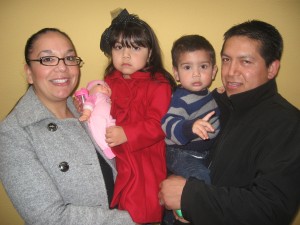
Last year the Obama administration passed a law allowing some undocumented immigrants to apply for work permits. As part of our occasional series called "What's Your Story?" San Jose resident Ayary Diaz talks about how Deferred Action for Childhood Arrivals is opening doors to opportunities she says she never thought she'd have. We post it here, since there is an intersection between Diaz' immigration status and her health. The following is a transcript of her first-person radio story.
For 24 years I've been forced to live in the shadows because of a choice that was never mine.
I’m an ‘illegal.’ My parents brought me here from Mexico when I was five, and I have been living -- undocumented -- in the United States ever since. I have two amazing children and a loving fiance but my road has been hard.
When I graduated from high school, I hoped to go to college like my peers. But I needed a Social Security number to apply and, most importantly, to get financial aid. I didn't have one and began to think that I would have the same poor and unproductive life I’d seen my parents live.
But in 2001, a new California law changed things. Undocumented students could apply to college as California residents if they had graduated high school and had been continuously living in the States for several years. So I went to Foothill Community College and then San Francisco State. It took me eight years, working countless hours as a minimum wage server while going to school fulltime to pay for my tuition in cash. But I had my degree, in international business, the first in my family.